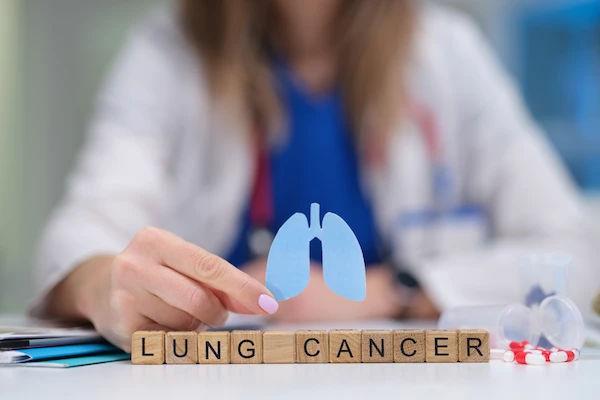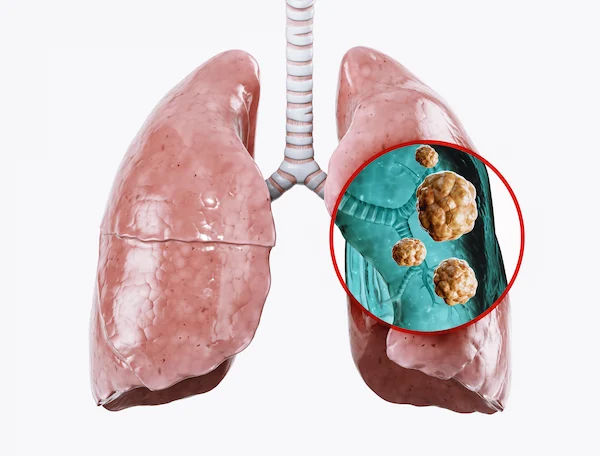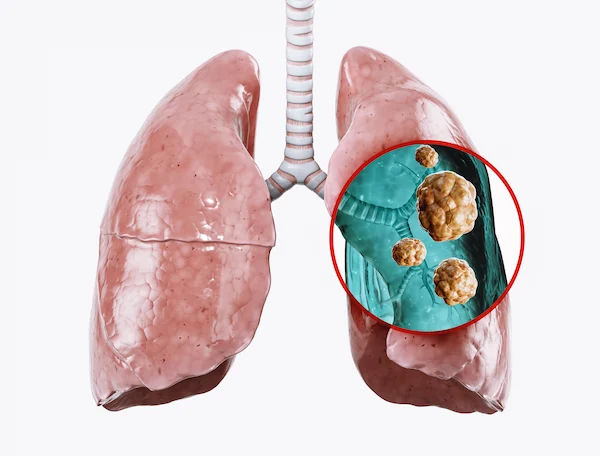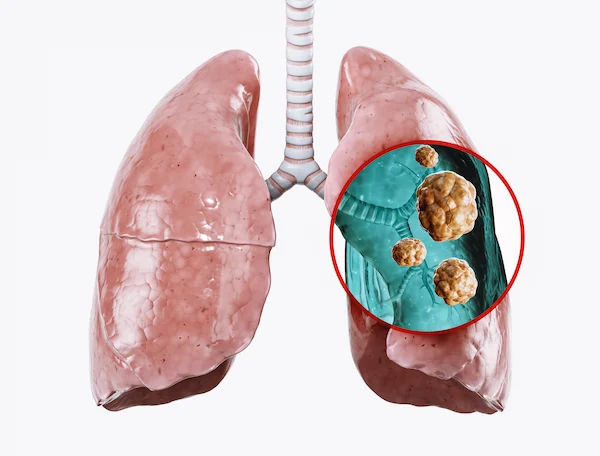Lung Tumour Symptoms and Diagnosis
Learn about the symptoms, causes, and diagnosis of lung tumours. Understand early warning signs, risk factors, and when to consult a specialist for timely care and better outcomes.


Finding out that you or a loved one might have a lung tumour can be overwhelming. But knowledge is power, and understanding the symptoms, causes, and diagnostic process can help you take the right steps toward better health. This article will guide you through the key aspects of lung tumours in a simple and compassionate way.
What is a Lung Tumor?
A lung tumour is an abnormal growth of cells in the lungs. Tumours can be benign (non-cancerous) or malignant (cancerous). While benign tumours are usually less harmful, malignant tumours can spread to other parts of the body and require prompt medical attention.
Common Symptoms of Lung Tumours
Lung tumours may not always cause symptoms in the early stages, but as they grow, they can lead to:
1. Persistent Cough – A cough that doesn’t go away or worsens over time.
2. Coughing Up Blood – Even small amounts of blood in phlegm should be checked.
3. Shortness of Breath – Difficulty breathing, especially during routine activities.
4. Chest Pain – Pain that worsens with deep breathing, coughing, or laughing.
5. Unexplained Weight Loss – Losing weight without trying could be a warning sign.
6. Fatigue – Feeling unusually tired or weak.
7. Recurrent Infections – Frequent bronchitis or pneumonia may indicate an underlying issue.
8. Wheezing or Hoarseness – Changes in voice or noisy breathing.
If you experience any of these symptoms for more than a few weeks, it’s important to see a doctor.
What Causes Lung Tumours?
Several factors can contribute to the development of lung tumours:
- Smoking – The leading cause of lung cancer. Even secondhand smoke increases risk.
- Exposure to Radon Gas – A naturally occurring radioactive gas found in some homes.
- Air Pollution – Long-term exposure to polluted air can damage lung tissue.
- Occupational Hazards – Exposure to asbestos, arsenic, or other chemicals.
- Family History – A genetic predisposition may increase risk.
While some risk factors (like smoking) can be controlled, others (like genetics) cannot. The good news is that early detection improves treatment outcomes.
How Are Lung Tumours Diagnosed?
If your doctor suspects a lung tumour, they may recommend the following tests:
1. Imaging Tests
- Chest X-ray – The first step to detect abnormalities.
- CT Scan – Provides detailed images to identify tumour size and location.
- PET Scan – Helps determine if cancer has spread.
2. Biopsy
- A small tissue sample is taken (via needle or bronchoscopy) and examined under a microscope.
3. Sputum Cytology
- Mucus from coughing is analysed for cancer cells.
4. Blood Tests
- It may help detect tumour markers or assess overall health.
Early diagnosis is crucial, so don’t delay if you notice persistent symptoms.
Consult Top Specialists
Tips for Managing Lung Health
While not all lung tumours can be prevented, you can take steps to reduce risk and support lung health:
- Quit Smoking – The single best way to lower lung cancer risk.
- Avoid Secondhand Smoke – Stay away from environments with heavy smoke.
- Test for Radon – Ensure your home is radon-free.
- Eat a Healthy Diet – Antioxidant-rich foods (fruits, vegetables) support immunity.
- Exercise Regularly – Improves lung capacity and overall well-being.
- Get Regular Check-ups – Especially if you have a family history or risk factors.
When to See a Doctor
If you experience persistent symptoms like a long-lasting cough, chest pain, or unexplained weight loss, don’t ignore them. Early detection can make a significant difference in treatment success.
Need Help? Book a Consultation Today
If you're concerned about lung health or need diagnostic tests, Apollo 24|7 offers expert consultations and advanced diagnostic services. You can easily schedule an appointment online and get the care you need from trusted specialists.
Final Thoughts
Lung tumours can be scary, but understanding the signs and seeking timely medical help can lead to better outcomes. Stay aware, take preventive steps, and prioritise your lung health. If you have any concerns, don’t hesitate to reach out to a healthcare professional.
Consult Top Specialists
Consult Top Specialists
Dr. Gaddam Manoj
General Practitioner
1 Years • MBBS
Hyderabad
Aaradhya clinic, Hyderabad

Dr. Mainak Baksi
General Practitioner
13 Years • MBBS , MD (MPH)
Howrah
Mainak Baksi Clinic, Howrah
(50+ Patients)

Dr. Suvadeep Sen
Critical Care Specialist
12 Years • MBBS, MD, FNB (CRITICAL CARE MEDICINE), EDIC
Mumbai
Apollo Hospitals CBD Belapur, Mumbai
Dr. Rijesh Kumar
General Practitioner
14 Years • MBBS
Chennai
Hycare Super Speciality Hospitals, Chennai

Dr. Riti Srivastava
General Practitioner
12 Years • MD (Physician)
Gautam Buddha Nagar
Shri Krishna Clinic, Gautam Buddha Nagar
Consult Top Specialists
Dr. Gaddam Manoj
General Practitioner
1 Years • MBBS
Hyderabad
Aaradhya clinic, Hyderabad

Dr. Mainak Baksi
General Practitioner
13 Years • MBBS , MD (MPH)
Howrah
Mainak Baksi Clinic, Howrah
(50+ Patients)

Dr. Suvadeep Sen
Critical Care Specialist
12 Years • MBBS, MD, FNB (CRITICAL CARE MEDICINE), EDIC
Mumbai
Apollo Hospitals CBD Belapur, Mumbai
Dr. Rijesh Kumar
General Practitioner
14 Years • MBBS
Chennai
Hycare Super Speciality Hospitals, Chennai

Dr. Riti Srivastava
General Practitioner
12 Years • MD (Physician)
Gautam Buddha Nagar
Shri Krishna Clinic, Gautam Buddha Nagar




